Thinking of making compost at home but unsure where to start? Whether you are looking to creating your own compost for your plants or seeking a solution to food waste, there are several systems to choose from when it comes to composting in Singapore. Here is a list of systems available locally, there is one to suit your space, budget and comfort zone.
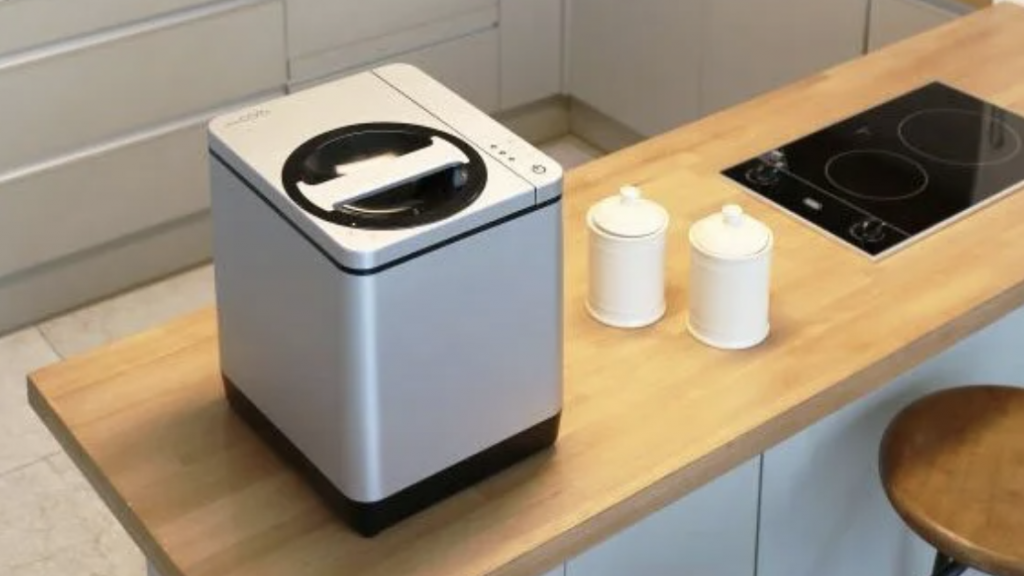
1. Smart Cara PCS350D – This is for those who prefer a straightforward, high tech option and do not mind the $1299 price tag. Made in South Korea, there is no need to sort your food waste and you can put raw and cooked food into it, unlike many low tech solutions. This unit holds up to 1kg of food waste and it takes 3-4 hours to convert food to compost, grinding and dehydrating it in the process. A compact device, it doesn’t take much space in the home and is perfect for kitchens with space constraints. Get your Smart Cara from Ecoponics.
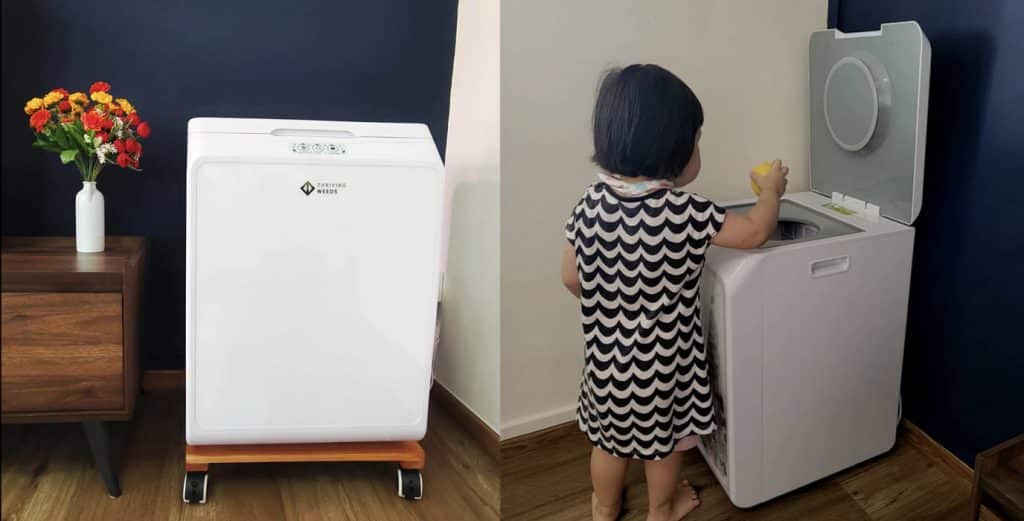
2. The Remora – This electricity-powered system accelerates the composting process and breaks down your food scraps within 48hrs. There are 2 models available, the smaller unit can hold 1 – 1.5kg of food per day, while the larger unit is able to hold up to 2kg of food scraps per day. It is able to process food such as bread, meat, dairy, fruits and vegetables and others. Prices start from $899, get yours from Thriving Weeds.
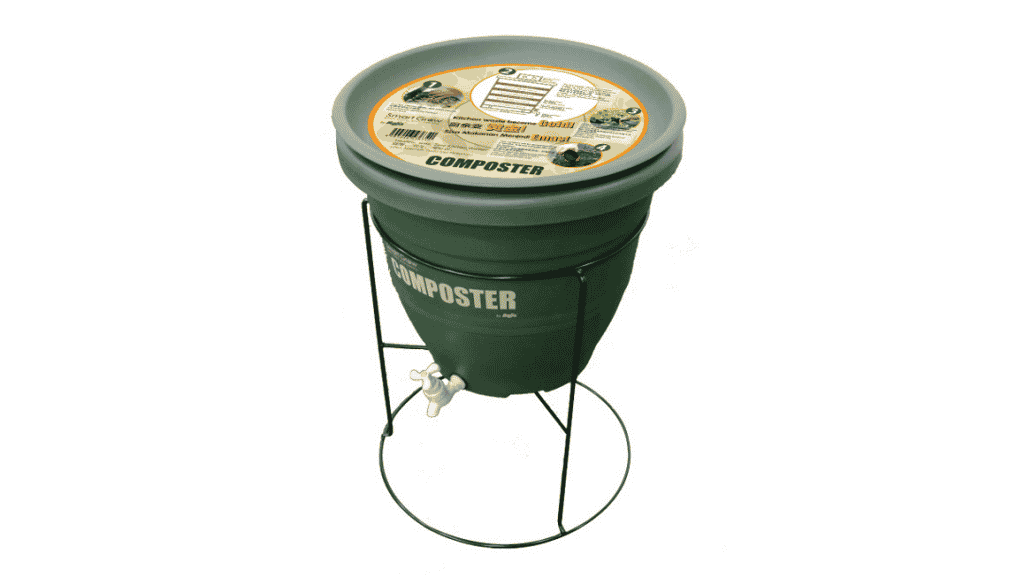
3. Baba Compost Bin – This is suitable for those who travel often and are unable or unwilling to take care of a worm bin. An anaerobic composting system, this compost bin is most suitable for raw food waste and garden clippings, but not meat, eggs or dairy, and also produces leachate which can be diluted and applied to plants. Similar to the Bokashi Bin, the manufacturer recommends using this bin with their house brand Compost Maker, which contains microbes to speed up the decomposition process. This is not absolutely necessary, alternatively you can mix fruit and vegetable peelings and/or garden clippings with moist healthy soil to assist with composting, remember to balance the green (nitrogen) and brown (carbon) materials. A reminder – always dispose of diseased plant parts, and never add it to your compost bin! Place this in a warm or sunny spot to accelerate the breaking down process, and after two months, your compost should be ready. There is a chance that your compost might still be acidic and might require an aerobic phase for the pH to neutralise. This is one of the more affordable composting options in this list, the 30L Baba Compost Bin is available at World Farm for $67.41. Get yours at World Farm!
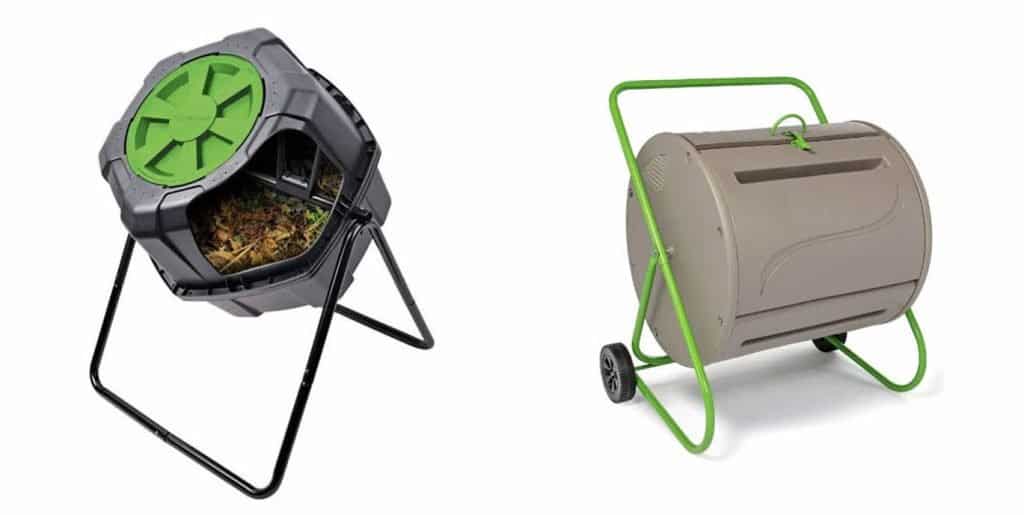
4. Tumbleweed Tumbling Compost Bins– This is one for the urban farmers and gardeners! The Tumbleweed is an aerobic composting bin which makes mulch and compost in weeks – depending on how long you leave your garden clippings, dried leaves and fruit and veg clippings in there for. It is recommended to balance 50% garden waste (green and brown) with 50% raw food scraps in the tumbler. What makes this special is the ability to effortlessly turn its contents, and through this act of aeration, your organic waste is well mixed and breaks down quicker because oxygen is required for decomposition. They offer a few different versions, these units makes for a wonderful addition to community gardens, courtyards and backyards. Find a sunny spot to house one of these tumblers and turn it every couple of days. The Tumbleweed Compost Tumbler is available in the following sizes: 110 litres, 140 litres, 170 litres and 220 litres. Prices start at $289 at Organic Origins.
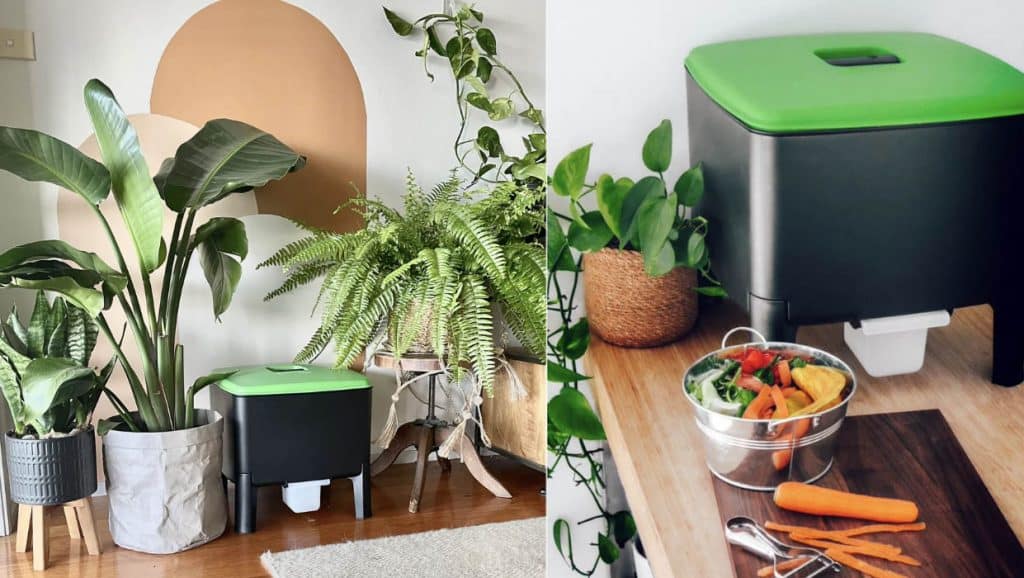
5. Vermicomposting – A worm farm is a great composting system for those who have lots of raw fruit and vegetable food waste. This system gives you worm castings as well as worm leachate, both contain lots of micronutrients and beneficial microbes and help with soil conditioning. Worms don’t fancy oil, salt, meat, dairy and citrus, so this system is not suitable for those who are keen on composting food of this nature. The Tumbleweed Cube is a compact unit and suited for indoor use. It is available at Organic Origins – $160 excluding worms. Another vermicompost set up available is on the market is from Growerck, a basic 3-tier worm bin starts at $69, message them on Carousell to find out more.
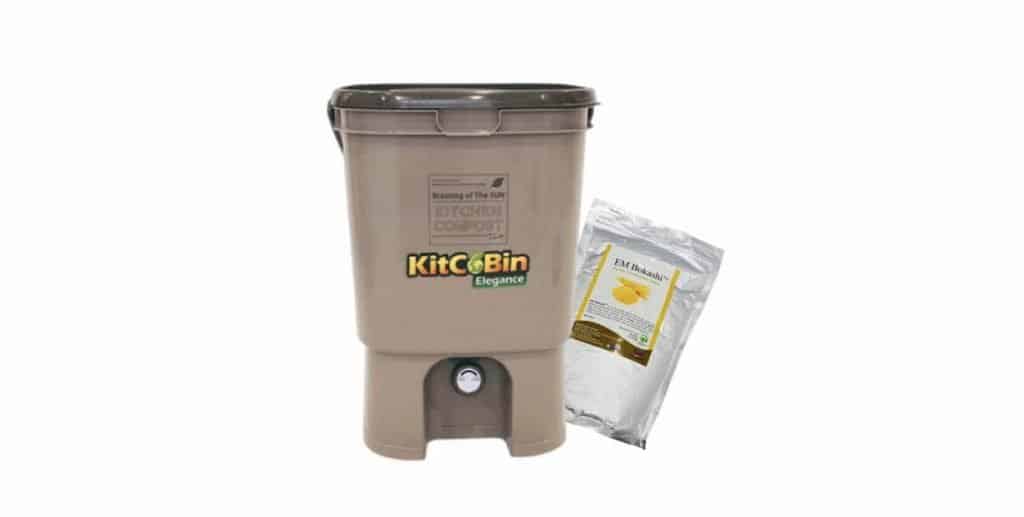
6. EM Composting Bin – This anaerobic system uses EMs, or Effective Micro-organisms that include beneficial yeasts and bacteria, to hasten the process of composting through fermenting food waste. When the bin is full, it is sealed and left alone to pickle, and after 10 -14 days, its contents will be turn into pre-compost, which needs to be added to a compost bin or heap to further compost for at least two weeks because it requires that amount of time for its acidity to neutralise. What is fantastic about this system is that you can compost eggs, dairy, cooked food, as well as raw and cooked meat. Like many low tech compost systems, this requires a balance of wet and dry ingredients so that its contents are not too moist, which can result in a bad odour. This system requires the continual purchase of Bokashi powder (includes EMs), which is applied each time food is added to the bin. During the composting process, leachate is also produced and can be used as a nutrient booster for plants. The 19-litre EM Composting Bin costs $128 at GreenSpade, find out more here.
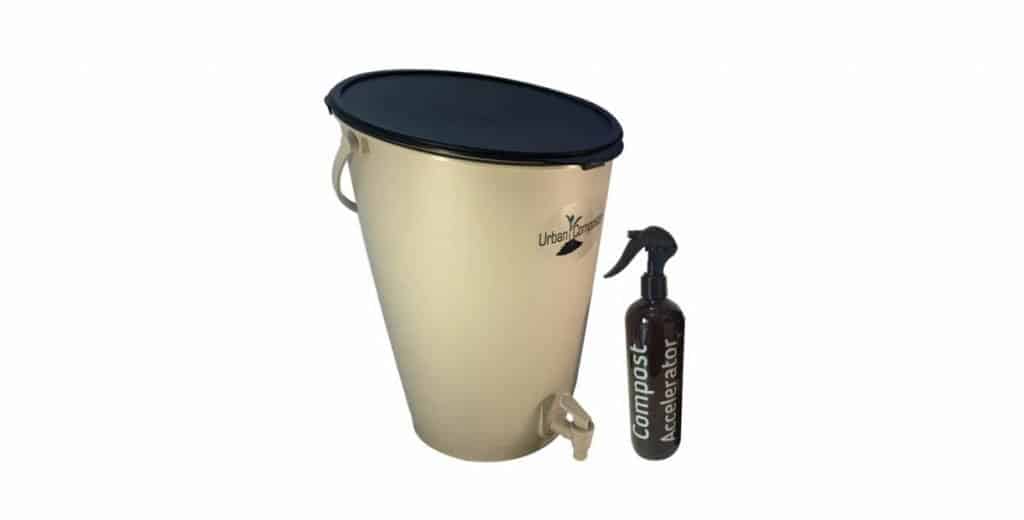
7. Urban Composter Kit – Similar to the EM composting bin above, this composter uses effective microorganisms but in the form of a spray. Compost vegetables, meat, dairy and any food other than bones and excessive liquids, then spray the Compost Accelerator to begin the process of composting. Drain the liquid using the tap every 2-3 days and this leachate can be diluted and used on your plants. The solid contents need to be further composted by burying it in soil for it to break down. The Urban Composter Kit is available at The Green Collective for $79. There is a smaller, 8 litre composter also available at The Green Collective here at $69.
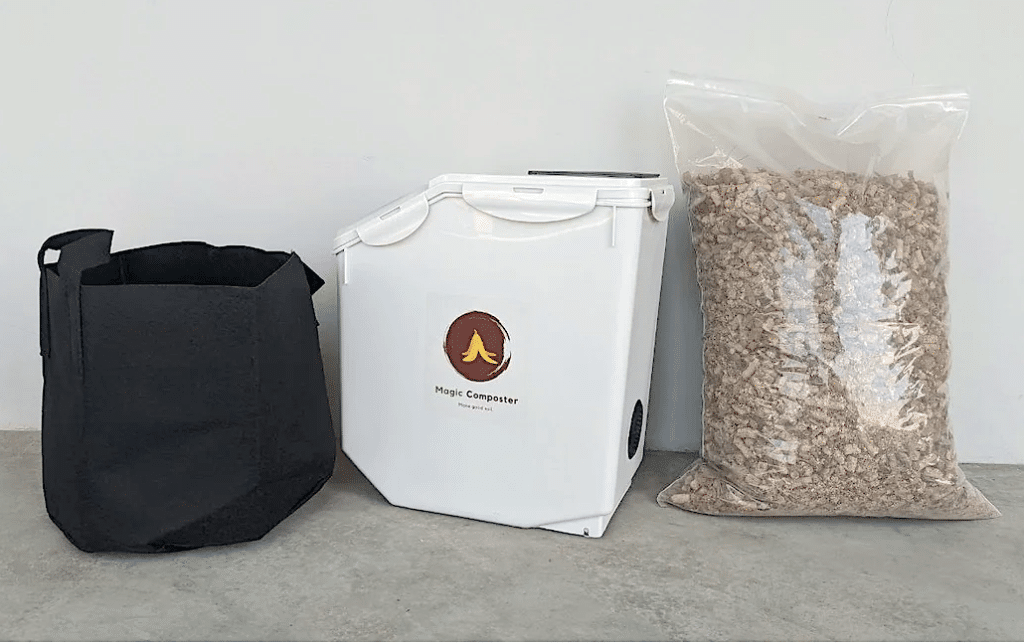
8. Soil Social Magic Composter – This aerobic composter uses substrate which is infused with compost tea that is full of beneficial microbes, which will help to break down the food waste. Compost fruits and vegetable peelings or waste and cover with substrate and let the microbes do its work. Avoid meat and dairy. Get the Magic Composter at $68 from Soil Social here!
9. DIY – Prefer to make your own compost bin instead? You can easily put together a basic indoor compost bin for less than $20 by following these instructions. Or if you would like to build compost bays in your garden, watch this Gardening Australia video to get an idea of how you can go about doing so.
I’d like to make a noteworthy mention of Black Soldier Fly (BSF) larvae. Featured in the media in recent months, it is amazing at processing food waste. These larvae eat virtually anything but high cellulose items, highly recommended for dining establishments and homes that do a lot of cooking and have lots of food waste, as they can go through a lot of food in a short period of time – reportedly 1 sqm of larvae can consume 15kg of food per day. Unfortunately no one is selling BSF larvae kits commercially here yet, but it is available for purchase in Malaysia. Insectta, a BSF larvae farming enterprise located at Citizen Farm, accepts food waste on occasion, check their Facebook page for updates!
Composting in Singapore in a worthwhile activity and you’ll find it easy once you get the hang of it. I’d recommend composting to anyone because it diverts food waste from our incinerators, and turns waste into a resource. Not every household requires a bin but we can encourage our neighbours to give us their food waste or give them access to our bins. I hope you find a composter from this list that suits you!
For more gardening updates, follow my Facebook Page – The Tender Gardener, Instagram page @tendergardener and subscribe to my YouTube channel! See you there!
Main image from Canva


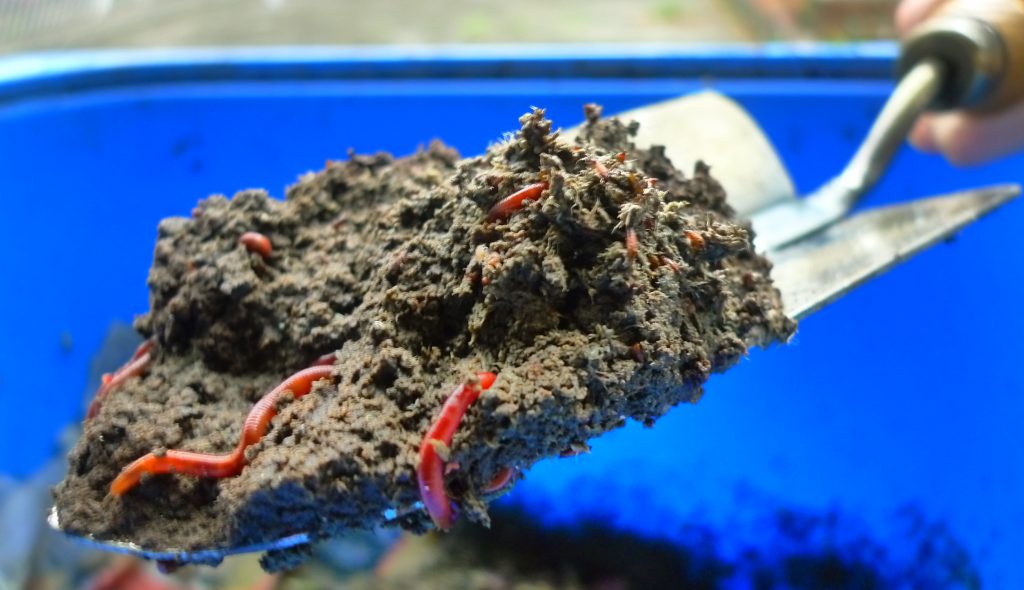
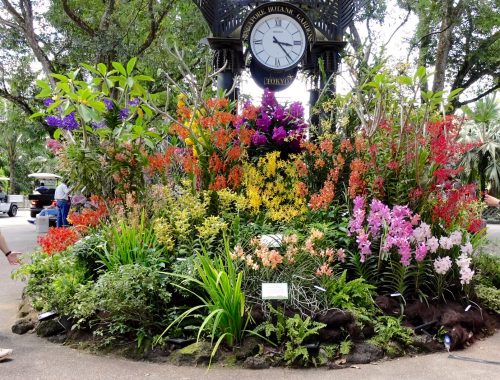
14 Comments
why the baba composter cannot add egg shell?
Hi Ken, egg shells are fine, just not the actual egg itself because it makes the compost stink.
Very good nice article! This is highly recommended. Thumbs up for sharing this!
Thanks Alan!
Hi is there any good system recommended for Community composting, like old condos?
Hi Ga, you might to consider a Tumbleweed tumbling compost bin if there is not that much waste, and if you are composting fruit waste. If there are a lot of leaves, you might want to create composting bays using bricks. You can create two or three compost bays depending on how much waste you have.
Thanks for your reply. What about if we have 100 apartments want to start a community composting in the condo. I am looking out for systems who can provide these a little large scale . If you have any thoughts let me know would like to connect with you. Thanks.
Hi Ga, I see how that can add up to a lot each day. In this case, it sounds like you might need a black soldier fly larvae compost bin, since they can process a lot of waste each day (which your condo may not permit for fear of attracting vermin) or a more high tech, pricier solution like a food digester. Or you could have a mix, such as a few tumbling compost bins (there are some large ones available at Organic Origins (mentioned in the blog post) and a compost pit (compost only leafy greens to minimise vermin infestation). However, for a start you can consider having a few tumbling compost bins and alternate its use, while you gradually get households onboard to the habit of composting.
Great article! I was wondering, what would you recommend to do with the compost if you do not have space for a garden? Thank you!
Hi Chang, I would suggest that you give it to others 🙂 You can try offering it on Facebook groups like Urban Farmers (singapore) and other platforms.
Hi Olivia,
Do you know anyone need recycled coffee ground? About 15kg a day.
Hi Nick, I’ll have to get back to you on this.
Hi Olivia – we were looking at getting a composter for our garden but worried about the bad smells – which is best one for this?
Thanks
Hi Graham, what will you be composting, will you be composting mainly food scraps? Assuming that you are composting fruit and veg peelings (no meat or dairy) or don’t have too much wet waste, it sounds like an aerobic composter in the form of a tumbleweed composter would be more suitable for you, since you will be keeping it in the garden. It will also keep any rats out of your compost if there are fruit/veg in the composter. Feel free to share more details with me and I will be able to further advise 🙂